The upcoming New Zealand Music Month Summit will highlight issues facing our local music industry with panels on four different topics: mental health, regional isolation, diversity and women in music.
Alex Behan spoke to someone from each of the panels: composer and APRA's director of members services Victoria Kelly, Niuean singer/songwriter Tommy Nee, manager and promoter Teresa Patterson and The Chills' manager, Scott Muir.
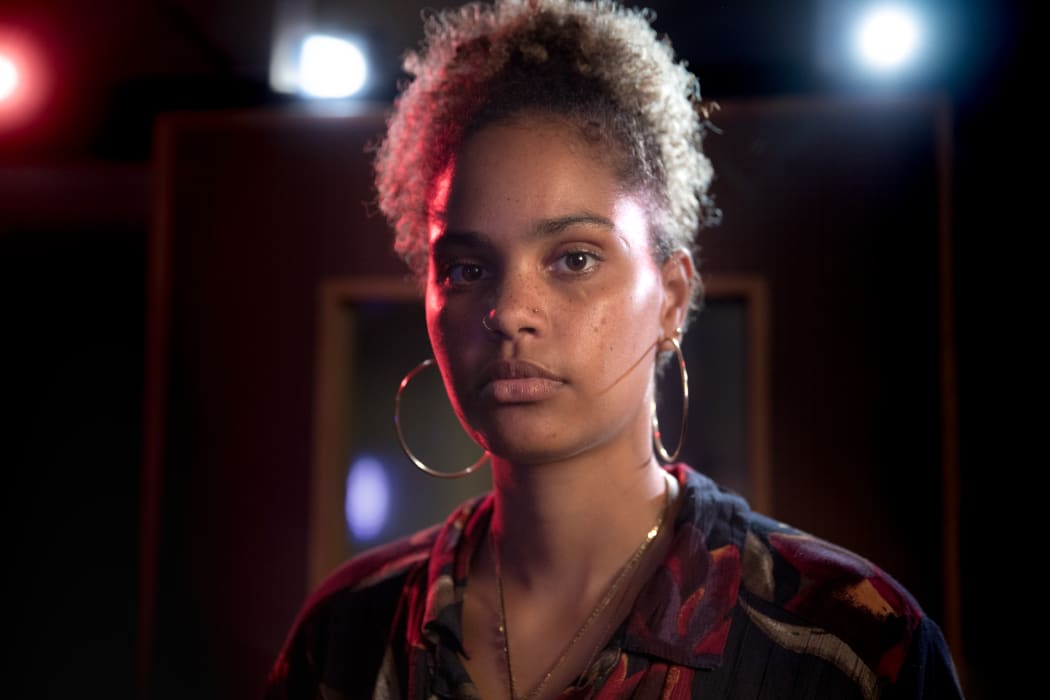
Jess B, one of the panelists for 'Women in music' Photo: RNZ / Cole Eastham-Farrelly
Wellbeing
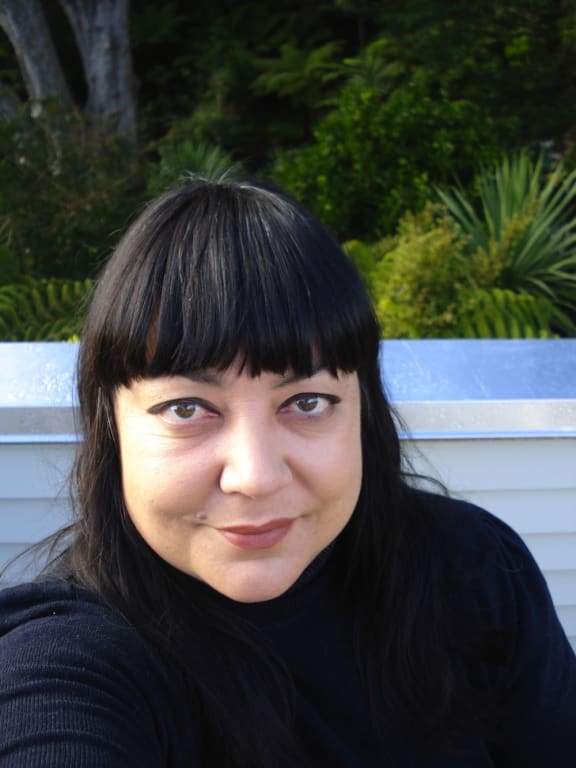
Teresa Patterson Photo: supplied
Teresa: The whole premise behind the summit this year was confronting some of the issues that the industry has faced in recent times. Wellbeing has actually been an issue in the industry for quite a few years, but it's been brought to the forefront unfortunately due to some deaths of high profile musicians.
People started to look into what was happening behind the scenes, and why this was happening. But then you needed to delve deeper than just the musicians because of course, they are the well-known ones, but then there's the support teams behind the scenes - and they also need support. Especially those who are freelancers: managers, freelance publicists, agents, crew - they have financial pressure, family pressure, especially if you're on the road and away from your family for a long time.
Related: Shihad drummer Tom Larkin on supporting musicians with mental illness
Wellbeing is something that is very dear to my heart. I've been in the industry for 25 years, I've been a manager for 15 years and I can safely say that every single artist that I've managed there's been a wellbeing issue. And I've had wellbeing issues myself - as a manager you are in charge of someone else's career, and the pressure of that is enormous. I have woken up at 4 o'clock in the morning, stressed [about whether] I am making the right decision for my artist.
And then there are times when you take on too much, like you take on too many artists and you're trying to juggle too much work ... I would be working from 7 in the morning to midnight, because you're juggling different time zones, especially if [the artist has] been released internationally, and your own health takes a toll.
There was a period in my life where I just was not seeing family or friends, I was one hundred percent work. And that was not good - there was no work/life balance happening there.
Alex: I do feel like there's a groundswell of people talking about this more within the music industry in the last year or two.
Teresa: Yes. I mean for a while there was a massive stigma about mental health, in that if you were suffering from depression, it was seen to be weak, people thought it would have an adverse effect on their career, I know that with production or stage crew they felt it would mean that they wouldn't get booked ... and I'm really really glad that the conversation is more public and people feel that they can talk about it or admit that they've had mental health issues.
Regional Isolation
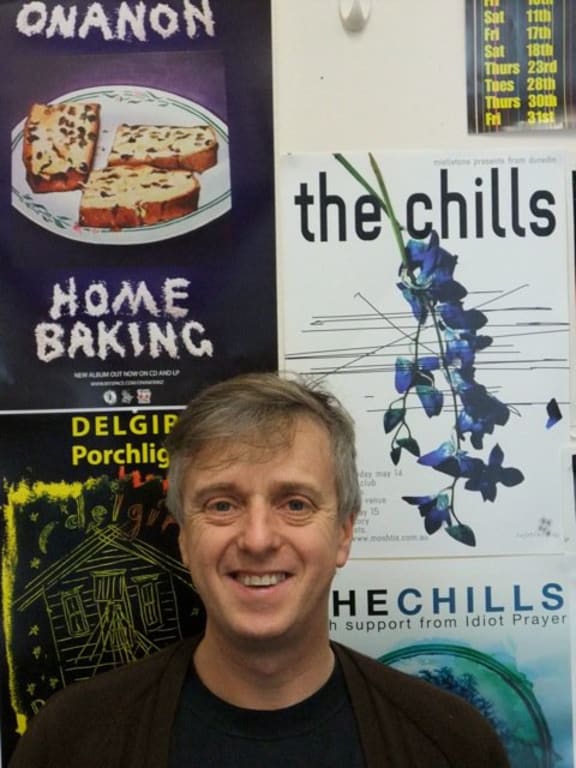
Scott Muir Photo: supplied
Scott: Dunedin is to New Zealand what New Zealand is to the rest of the world: we're at the bottom of NZ, at the bottom of the world. The things that we suffer from as a small regional area are the same things that NZ suffers from on the world stage. So we're going to be discussing those sorts of things, those kinds of challenges, and things that we've achieved to make it better for the regions.
Scott, you've been involved in managing bands for some years, has time and technology changed the issue of regional isolation? or does it still have some of the same old traps?
Scott: It's interesting, the tyranny of distance still exists. It's absolutely real. But it also kind of plays, in a way, to our favour. 'Cause what we end up with is that because we're isolated, we have to do something our own way. And innovation and creativity comes out of the fact that - and sometimes this also plays into the things we were talking about before in terms of people's wellbeing, is that we help each other more. There's a tendency to pull yourselves up by your bootstraps.
In a large diaspora such as Auckland, it's less easy - in my opinion - to be able to create a sense of community whereby you get a true sense of the industry helping itself and helping others around it. Just [because of the] fact that it's so large. So when it's small and it is isolated, that actually helps in a way. It's easier to pick up a guitar and walk around the corner to a mate's flat than it is to drive 15, 20, 30 minutes to go to those people's places and do the same thing.
Related: The birthplaces of the 'Dunedin Sound' with Martin Phillipps of The Chills
If there was one thing the music industry in Auckland completely forgets, and overlooks when it comes to touring, or radio play and working in the music industry in some of the regions, what do you think it is?
Scott: Good question. That we all... are the same. Doesn't matter whether you're in Auckland consuming music or on a farm in Southland consuming music, we all love it and we all want to hear it. And the appreciation - and I know this from touring into small places - the appreciation levels are really really high. How do you carry that on, and keep the conversation going? ... Those people's appreciation turns into purchase of music or streams of music, and how do you keep that conversation going?
Women in music
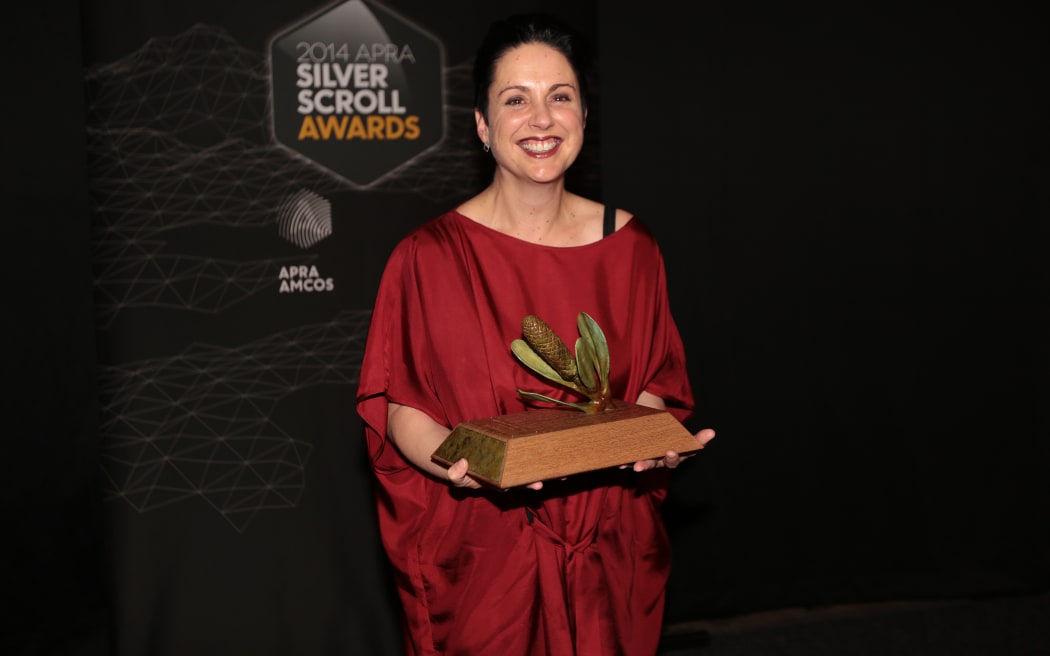
Victoria Kelly poses with her award at the Silver Scrolls. Photo: RNZ/Diego Opatowski
Victoria: Our panel is going to be talking about what the experience is of women in the music industry. And there has been a lot of conversation recently about women in the music industry because of the #Metoo movement and the #Timesup movement. But even though it's a hot topic right now, it's been an issue for women for decades - if not centuries - being utterly outnumbered in the music industry.
Related: Victoria Kelly talks about some of the pioneering female musical artists
And the interesting thing about it is that it's not due to a lack of interest from women, or non-binary people across the gender spectrum in this, because of course it's simply a male-dominated field, and the presence of any other kind of gender expression is pretty low in the music industry.
The conversation we've had before is around improving representation at all APRA events, and that's a step in the right direction. I notice on your panel you've got people from different corners of the industry in that you've got artists and record company people also.
Victoria: That's right, so on the panel is Kim Boshier, who's the Managing Director of Sony [Music New Zealand]. She was the first woman in either New Zealand or Australia to run a major label, and as far as I understand it she is still the only one.
That's unbelievable to me.
Related: APRA's ambitious moves toward gender equality
Victoria: It is, and there's a lot of conversation about the fact that so many of the gatekeepers are men. And probably unconsciously, they are continuing to perpetuate the gender inequity, simply by being drawn to hire people that look like them.
The hope is that the energy being generated by movements like #Metoo and #Timesup will start to make a real impact on people's careers, and won't die out. It's up to us to keep that conversation alive and use the momentum that's generated.
It's not just about getting organisations and gatekeepers to understand and reflect and make changes to the way that they operate, it's also about generating the strength, solidarity, sisterhood and support within the women in the music industry so that they are supporting each other to put themselves forward.
It's a complicated and really interesting issue because the other aspect of it is that nobody wants a hand up based on gender as opposed to merit. No one wants to suddenly have access to more funding or more opportunities because they're a woman and not because they're great at what they do.
The number of times I've found myself in situations where my contribution's been underestimated because I'm female.
In preparation for this panel, I frequently say, 'I've spent 30 years in the music industry, 98 percent of my collaborators have been male during that time', and I thought, 'No, I need to back that up with some actual reflection.' So I went through and made a list of every single thing I've ever done, and I worked out that actually, the percentage of my male collaborators is closer to 85 percent.
But the reason why you laugh, is that when you're in a minority like that is that people are making assumptions. And especially when you're in an industry 15, 20 years ago when this conversation wasn't being had loudly or in fact at all.
Diversity
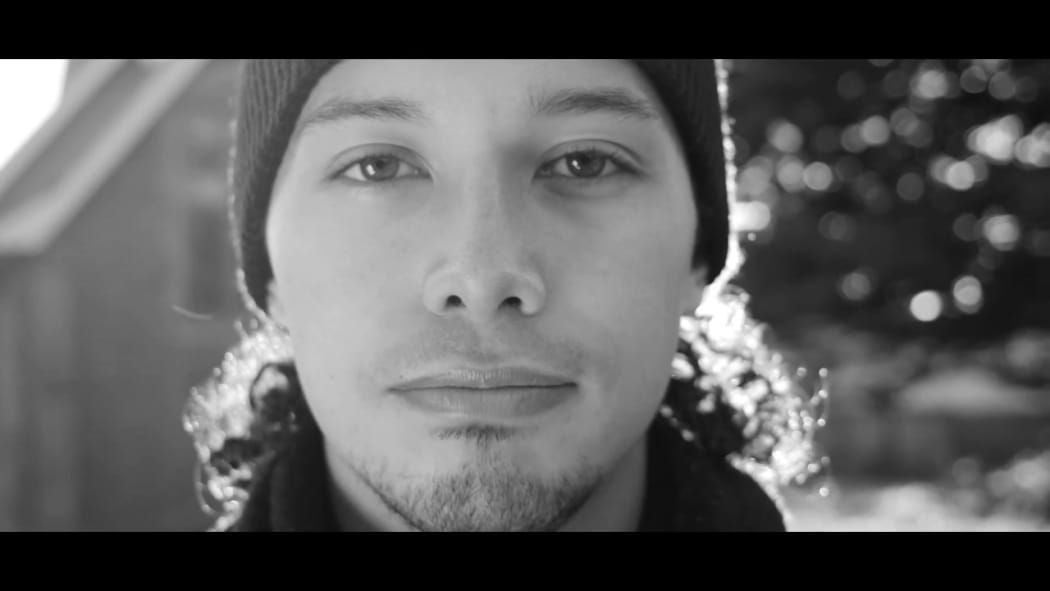
Photo: youtube screenshot
Tommy Nee: What a time [to talk about diversity] ... look at all these culture shifters. Look at FAFSWAG - transgender women from the LGBT community, who are culture shifting, giving it a whole new breath of life, saying, "We are who we are, and we are proud."
Talking about diversity in music, and in particular racial and in the LGBT community; discrimination within the industry ... is real, it exists. [It's personal for me] because my artistry is shaped around [discrimination]. It is very real, and what needs to happen in order to solve this is primarily awareness that it is happening. Even if you think, 'Oh I'm not involved in this,' you are. Everyone has a place to do something.
The 2018 Official NZ Music Month Summit - Confronting Issues In The Music Industry
Saturday 26th May, 10am to 4pm - The Herald Theatre, Aotea Square, Auckland
Women In Music w/ Kim Boshier, Petrina Togi-Sa'ena, Victoria Kelly, JessB
Diversity In Music w/ Alien Weaponry, Ria Hall, Randa, Tommy Nee
Wellbeing w/ Gavin Downie, Tom Larkin, Teresa Patterson, Peter Dickens
Regional Isolation w/ Lynne Christie, Scott Muir, Andre Manella (Sonic Delusion), Kevin Murphy
Tickets are $10, which goes straight to the NZ Music Foundation.

